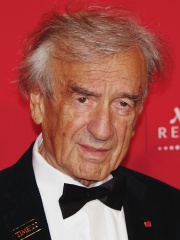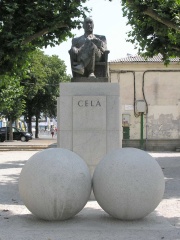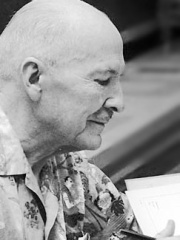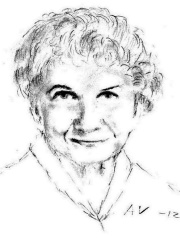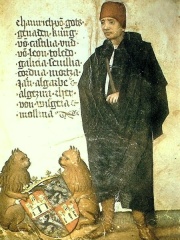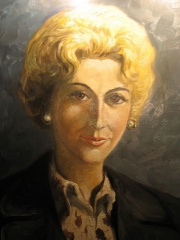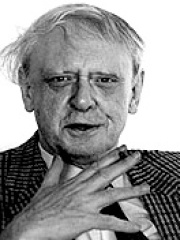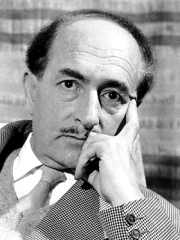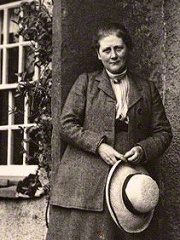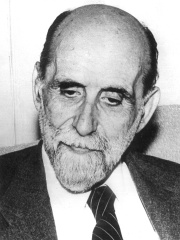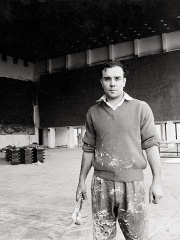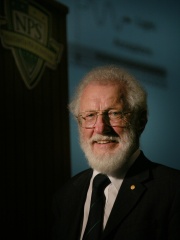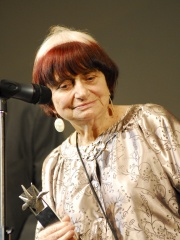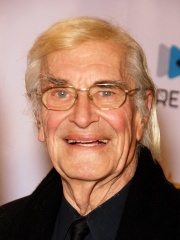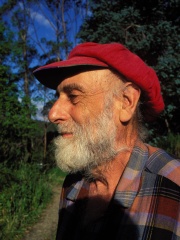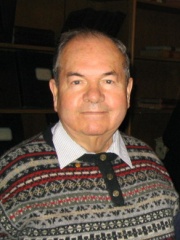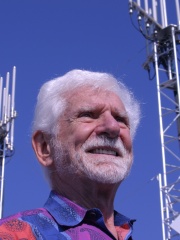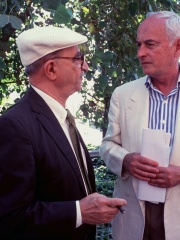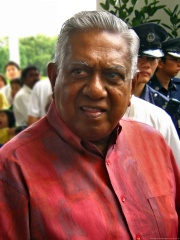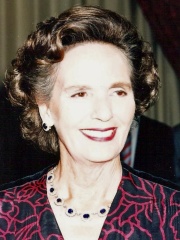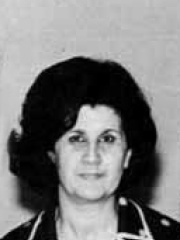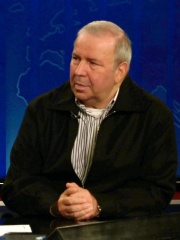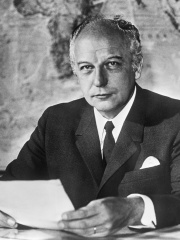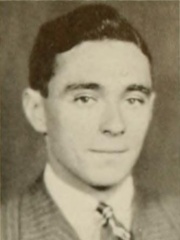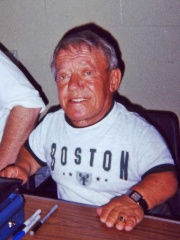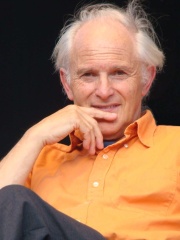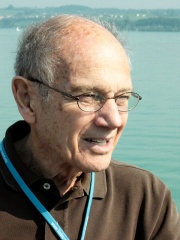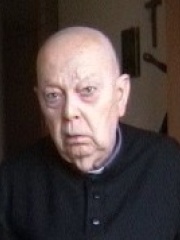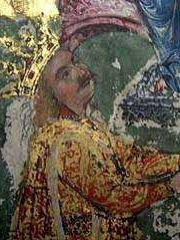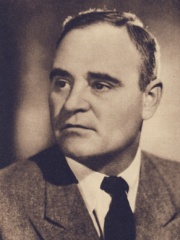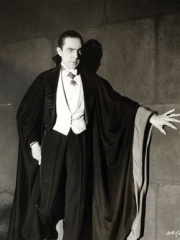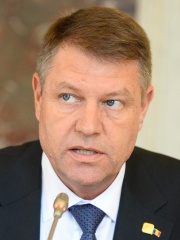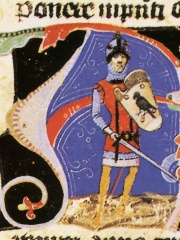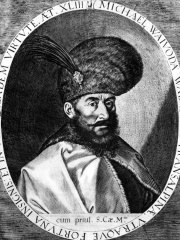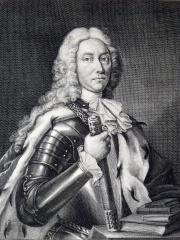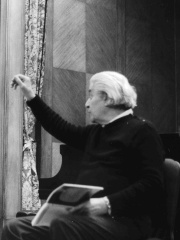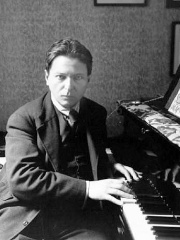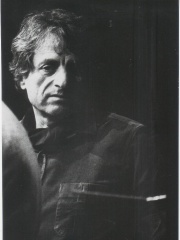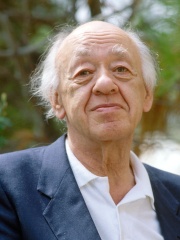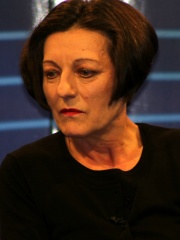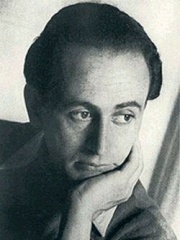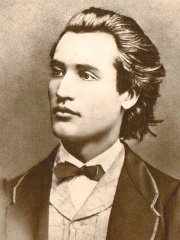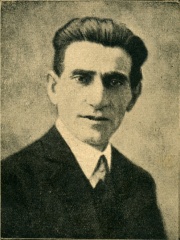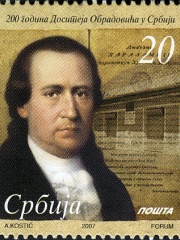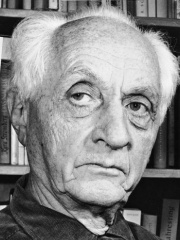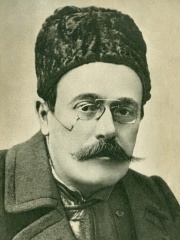Writer
Elie Wiesel
1928 - 2016
EN.WIKIPEDIA PAGE VIEWS (PV)
 Elie Wiesel
Elie Wiesel
His biography is available in 80 different languages on Wikipedia (up from 79 in 2024). Elie Wiesel is the 557th most popular writer (down from 519th in 2024), the 34th most popular biography from Romania (down from 31st in 2019) and the 5th most popular Romanian Writer.
Elie Wiesel is most famous for his book Night, which is about his experience in the Holocaust.
Memorability Metrics
Page views of Elie Wiesel by language
Among Writers
Among writers, Elie Wiesel ranks 557 out of 7,302. Before him are Camilo José Cela, Robert A. Heinlein, Alice Munro, Yunus Emre, Henry IV of Castile, and Matilde Camus. After him are Anthony Burgess, Tom Clancy, James Hilton, Salvatore Quasimodo, Beatrix Potter, and Juan Ramón Jiménez.
Most Popular Writers in Wikipedia
Go to all RankingsCamilo José Cela
1916 - 2002
HPI: 72.15
Rank: 551
Robert A. Heinlein
1907 - 1988
HPI: 72.14
Rank: 552
Alice Munro
1931 - 2024
HPI: 72.14
Rank: 553
Yunus Emre
1240 - 1321
HPI: 72.13
Rank: 554
Henry IV of Castile
1425 - 1474
HPI: 72.11
Rank: 555
Matilde Camus
1919 - 2012
HPI: 72.09
Rank: 556
Elie Wiesel
1928 - 2016
HPI: 72.03
Rank: 557
Anthony Burgess
1917 - 1993
HPI: 72.02
Rank: 558
Tom Clancy
1947 - 2013
HPI: 72.02
Rank: 559
James Hilton
1900 - 1954
HPI: 72.02
Rank: 560
Salvatore Quasimodo
1901 - 1968
HPI: 71.99
Rank: 561
Beatrix Potter
1866 - 1943
HPI: 71.97
Rank: 562
Juan Ramón Jiménez
1881 - 1958
HPI: 71.96
Rank: 563
Contemporaries
Among people born in 1928, Elie Wiesel ranks 34. Before him are Yves Klein, Herbert Kroemer, Queen Fabiola of Belgium, James Coburn, Domenico Modugno, and Agnès Varda. After him are Martin Landau, Friedensreich Hundertwasser, Maya Angelou, Alexei Alexeyevich Abrikosov, Martin Cooper, and James Ivory. Among people deceased in 2016, Elie Wiesel ranks 34. Before him are Carlo Azeglio Ciampi, S. R. Nathan, Queen Anne of Romania, Anisa Makhlouf, Frank Sinatra Jr., and Walter Scheel. After him are Jerome Bruner, Kenny Baker, Harry Kroto, Carrie Fisher, James Cronin, and Gabriele Amorth.
Others Born in 1928
Go to all RankingsYves Klein
ARTIST
1928 - 1962
HPI: 72.94
Rank: 28
Herbert Kroemer
PHYSICIST
1928 - 2024
HPI: 72.63
Rank: 29
Queen Fabiola of Belgium
NOBLEMAN
1928 - 2014
HPI: 72.28
Rank: 30
James Coburn
ACTOR
1928 - 2002
HPI: 72.14
Rank: 31
Domenico Modugno
SINGER
1928 - 1994
HPI: 72.09
Rank: 32
Agnès Varda
FILM DIRECTOR
1928 - 2019
HPI: 72.08
Rank: 33
Elie Wiesel
WRITER
1928 - 2016
HPI: 72.03
Rank: 34
Martin Landau
ACTOR
1928 - 2017
HPI: 71.95
Rank: 35
Friedensreich Hundertwasser
ARCHITECT
1928 - 2000
HPI: 71.91
Rank: 36
Maya Angelou
WRITER
1928 - 2014
HPI: 71.87
Rank: 37
Alexei Alexeyevich Abrikosov
PHYSICIST
1928 - 2017
HPI: 71.73
Rank: 38
Martin Cooper
BUSINESSPERSON
1928 - Present
HPI: 71.73
Rank: 39
James Ivory
FILM DIRECTOR
1928 - Present
HPI: 71.46
Rank: 40
Others Deceased in 2016
Go to all RankingsCarlo Azeglio Ciampi
POLITICIAN
1920 - 2016
HPI: 72.60
Rank: 28
S. R. Nathan
POLITICIAN
1924 - 2016
HPI: 72.59
Rank: 29
Queen Anne of Romania
COMPANION
1923 - 2016
HPI: 72.31
Rank: 30
Anisa Makhlouf
POLITICIAN
1930 - 2016
HPI: 72.20
Rank: 31
Frank Sinatra Jr.
SINGER
1944 - 2016
HPI: 72.13
Rank: 32
Walter Scheel
POLITICIAN
1919 - 2016
HPI: 72.07
Rank: 33
Elie Wiesel
WRITER
1928 - 2016
HPI: 72.03
Rank: 34
Jerome Bruner
PSYCHOLOGIST
1915 - 2016
HPI: 71.83
Rank: 35
Kenny Baker
ACTOR
1934 - 2016
HPI: 71.81
Rank: 36
Harry Kroto
CHEMIST
1939 - 2016
HPI: 71.51
Rank: 37
Carrie Fisher
ACTOR
1956 - 2016
HPI: 71.50
Rank: 38
James Cronin
PHYSICIST
1931 - 2016
HPI: 71.43
Rank: 39
Gabriele Amorth
WRITER
1925 - 2016
HPI: 71.25
Rank: 40
In Romania
Among people born in Romania, Elie Wiesel ranks 34 out of NaN. Before him are Stephen III of Moldavia (1433), Mircea Lucescu (1945), Gheorghe Gheorghiu-Dej (1901), Bela Lugosi (1882), Klaus Iohannis (1959), and Álmos (820). After him are Michael the Brave (1558), Dimitrie Cantemir (1673), Sergiu Celibidache (1912), George Enescu (1881), Gheorghe Hagi (1965), and Iannis Xenakis (1922).
Others born in Romania
Go to all RankingsStephen III of Moldavia
POLITICIAN
1433 - 1504
HPI: 73.60
Rank: 28
Mircea Lucescu
SOCCER PLAYER
1945 - Present
HPI: 73.09
Rank: 29
Gheorghe Gheorghiu-Dej
POLITICIAN
1901 - 1965
HPI: 72.40
Rank: 30
Bela Lugosi
ACTOR
1882 - 1956
HPI: 72.12
Rank: 31
Klaus Iohannis
POLITICIAN
1959 - Present
HPI: 72.08
Rank: 32
Álmos
POLITICIAN
820 - 895
HPI: 72.03
Rank: 33
Elie Wiesel
WRITER
1928 - 2016
HPI: 72.03
Rank: 34
Michael the Brave
POLITICIAN
1558 - 1601
HPI: 71.88
Rank: 35
Dimitrie Cantemir
WRITER
1673 - 1723
HPI: 71.85
Rank: 36
Sergiu Celibidache
CONDUCTOR
1912 - 1996
HPI: 71.49
Rank: 37
George Enescu
COMPOSER
1881 - 1955
HPI: 71.46
Rank: 38
Gheorghe Hagi
SOCCER PLAYER
1965 - Present
HPI: 71.37
Rank: 39
Iannis Xenakis
COMPOSER
1922 - 2001
HPI: 71.29
Rank: 40
Among Writers In Romania
Among writers born in Romania, Elie Wiesel ranks 5. Before him are Eugène Ionesco (1909), Tristan Tzara (1896), Herta Müller (1953), and Paul Celan (1920). After him are Dimitrie Cantemir (1673), Jacob L. Moreno (1889), Mihai Eminescu (1850), Panait Istrati (1884), Dositej Obradović (1742), Károly Kerényi (1897), and Ion Luca Caragiale (1852).
Eugène Ionesco
1909 - 1994
HPI: 79.45
Rank: 1
Tristan Tzara
1896 - 1963
HPI: 77.53
Rank: 2
Herta Müller
1953 - Present
HPI: 76.59
Rank: 3
Paul Celan
1920 - 1970
HPI: 75.26
Rank: 4
Elie Wiesel
1928 - 2016
HPI: 72.03
Rank: 5
Dimitrie Cantemir
1673 - 1723
HPI: 71.85
Rank: 6
Jacob L. Moreno
1889 - 1974
HPI: 71.09
Rank: 7
Mihai Eminescu
1850 - 1889
HPI: 70.52
Rank: 8
Panait Istrati
1884 - 1935
HPI: 68.42
Rank: 9
Dositej Obradović
1742 - 1811
HPI: 66.43
Rank: 10
Károly Kerényi
1897 - 1973
HPI: 65.15
Rank: 11
Ion Luca Caragiale
1852 - 1912
HPI: 63.94
Rank: 12
